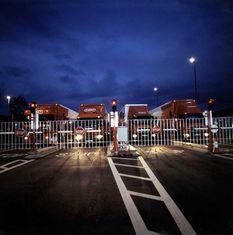
Eurotunnel, the operator of the Channel Tunnel, registered a disastrous 2003 net loss of £1.33bn, thanks in part to a depressed freight market.
Eurotunnel said the market for cross Channel freight shows no sign of improvement, with price competition remaining as fierce as ever. The company has proposed that both the UK and French governments address structural problems that are crippling the cross-Channel rail industry.
The tunnel has not carried the volume of fruit and vegetables that initially was expected, a story repeated across most industries utilising the service. "The cross-Channel rail industry currently suffers from under-utilisation of expensive infrastructure, financial losses and conflicting contractual relationships," Eurotunnel said.
"In particular the high level of access charges paid by rail companies for the use of the Channel Tunnel is holding back traffic growth."
Eurotunnel has carried out a year-long study into the faltering economics of the Channel Tunnel initiative and concluded that a significant reduction in access rates for train operators is necessary to encourage them to cut their costs.
"This should enable Eurostar to increase its traffic to existing destinations and would assist the introduction of new destinations such as Amsterdam," said Eurotunnel.
Lower fees could lead to higher earnings. Eurotunnel hopes to recoup lost revenue by revitalising both the passenger and rail freight markets. However, due to its perilous financial position, the company cannot reduce these charges unilaterally.